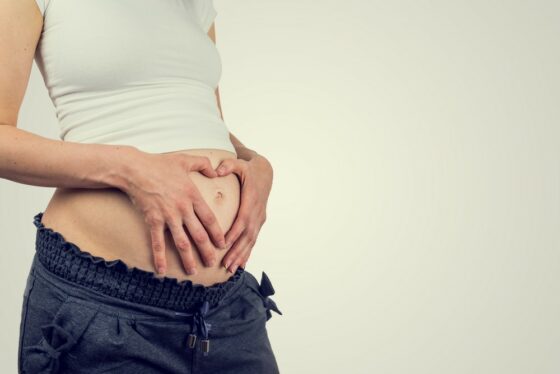For you, the first trimester of pregnancy can be a roller-coaster of emotions, fatigue and morning sickness. For your baby, it is an important time when all their vital organs are developing. From tiny beginnings as an embryo, by week 12 your baby can suck their little thumb. Discover all there is to know about this remarkable process.
The world might not know you are pregnant yet, but in many ways the first trimester can be pregnancy’s most physically challenging time.
Your own body will undergo huge hormonal surges that can result in tender, swollen breasts; morning sickness; and an overwhelming fatigue that makes an afternoon nap an absolute necessity.
The precious first weeks of pregnancy
Because pregnancy is calculated from the date of your last menstrual period, you are technically two weeks’ pregnant on the date of conception.
Indeed, many women don’t realise they are pregnant until after they have missed their period, by which time the fertilised egg has implanted in the uterus and the neural tube is nearly closed. If the developing embryo does not receive enough folic acid at this time there is an increased risk of neural tube defects, such as spina bifida.
That’s why it is a good idea to start taking folate supplements, and reduce alcohol consumption, while trying to fall pregnant – or, as soon as you think you might be pregnant. A balanced diet, and a daily prenatal supplement of recommended vitamins and minerals, may help ensure your baby receives everything it needs to grow.
You’ll also want to avoid some foods – like deli meats, unpasteurised soft cheeses and pre-prepared salads – to prevent exposure to listeria, a bacteria which can be fatal to the unborn child.
Keeping it under wraps
The first trimester is often kept secret, even from close friends and family, because of the high risk of miscarriage in the early weeks of pregnancy. This is baby’s most vulnerable time.
As well as growing a baby, your body is also making an entirely new organ this trimester. The placenta helps to nourish your growing baby, with oxygen and nutrients from your blood being filtered and transferred to your growing baby through the umbilical cord. It also secretes vast amounts of pregnancy hormones, such as progesterone and oestrogen, which are responsible for a lot of the body changes and emotional swings you are experiencing.
Every woman, and baby, is different
Some women might breeze through their first trimester without any nausea, while others will be crippled with severe morning sickness. If you do suffer from nausea, make sure you are getting enough rest and try to eat lots of small meals. You may find keeping a packet of dry crackers to snack on before getting out of bed helpful.
If you can’t take a siesta because you are working, you might find you need to crawl into bed early each night. Most women find that their nausea abates and their energy levels return to normal by the end of this trimester.
Soon, your bump will be beginning to show and the pregnancy will start to look and feel very real!
Want to know more? Call us on 1800 842 098 or Live Chat now.

Track your pregnancy
Get week-by-week updates on your baby’s development and your pregnancy.
Sign upRelated articles

Foods to avoid when pregnant
During pregnancy, some foods can potentially be harmful to you or your baby. Discover the foods to avoid here.

5 tips for healthy eating in pregnancy
A healthy, nutritious diet is important from the earliest days of pregnancy. Get useful tips for great eating habits when pregnant.

Changes to your body in pregnancy
Your body will go through lots of changes during pregnancy, so it’s great to be prepared right from the start.
